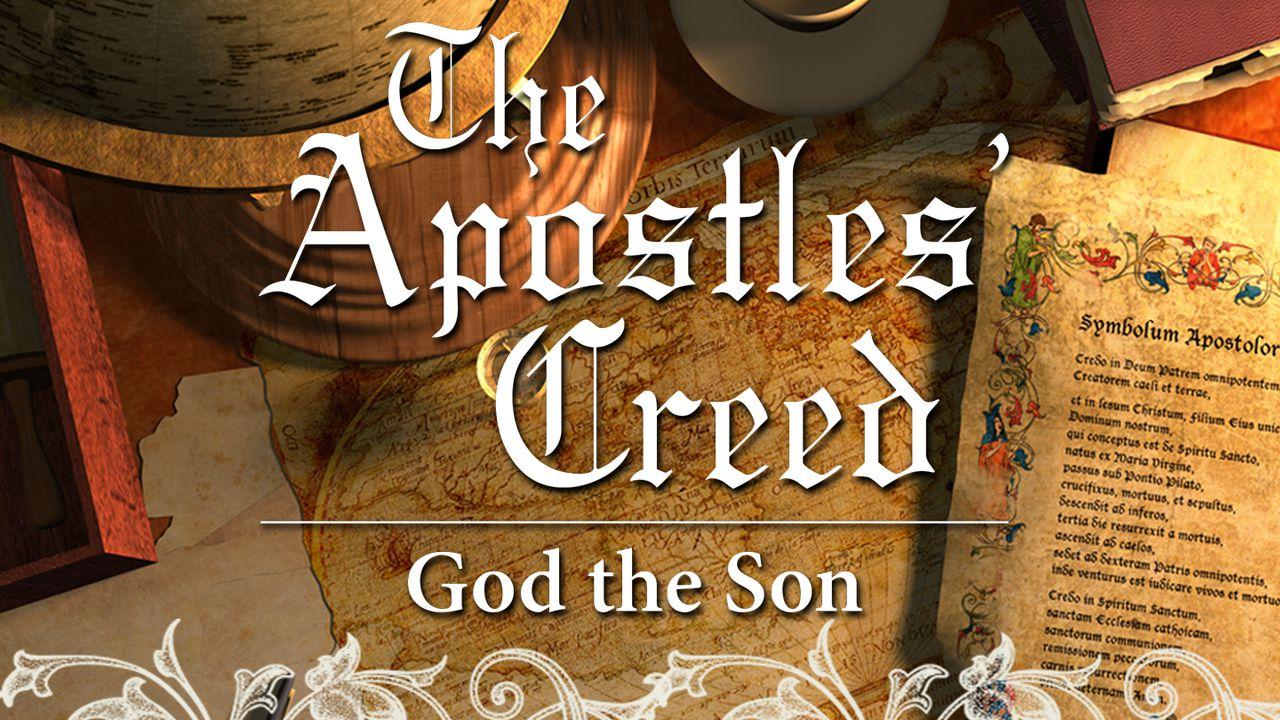The Apostles’ Creed: God The SonSample

Two Perspectives on the Trinity: John 8:28-29
This emphasis on Jesus as the divine and eternal Son of God is reflected in the doctrine of the Trinity, which states that:
God has three persons, but only one essence.
The New Testament teaches that Jesus is God the Son, one of the three persons of the Trinity. But what is his relationship to the Father and the Holy Spirit?
As we have discussed before, the ontological perspective on the Trinity focuses on God’s being and existence. As the Son of God, Christ is equal in power and glory to the Father and the Holy Spirit. All three of God’s persons — including the Son — are infinite, eternal and unchangeable. And each has the same essential divine attributes, such as wisdom, power, holiness, justice, goodness and truth.
By contrast, the economic perspective on the Trinity describes how God’s persons interact with each other. From this view, each one has different responsibilities, different levels of authority, and different assigned roles. For example, Christ has always been the Father’s Son, subordinate to the Father’s authority. Consider what Jesus said in John 6:38, where he described his submission to the Father:
I have come down from heaven not to do my will but to do the will of him who sent me (John 6:38).
And he made a similar claim in John 8:28-29, where we read these words:
Jesus said ... “I do nothing on my own but speak just what the Father has taught me. The one who sent me is with me; he has not left me alone, for I always do what pleases him" (John 8:28-29).
Throughout the New Testament the Son is subordinate to the Father’s authority. There is no conflict between them, because the Son and the Father always agree. But the higher rank belongs to the Father.
In a similar way, within the economy of the Trinity, the Son has authority over the Holy Spirit. For example, consider Jesus’ words in John 15:26:
When the Counselor comes, whom I will send to you from the Father ... he will testify about me (John 15:26).
In other passages, such as Romans 8:9 and 1 Peter 1:11, the Holy Spirit is actually called the “Spirit of Christ,” again indicating that the Spirit is sent by Christ.
These relationships are summarized in the identification of the Son as the second person of the Trinity. He is the second person of the ontological Trinity because he is generated by the first person, namely the Father, and he breathes out the third person, namely the Holy Spirit. And he is the second person of the economic Trinity because he holds the middle rank. He is subordinate to the Father, but he has authority over the Holy Spirit.
Scripture
About this Plan

This reading plan speaks of the divinity of Jesus Christ, looking at things like the nature of his divinity, and his relationship to the other members of the Trinity. It looks at his humanity, and discusses the relationship between his divine and human natures. And it talks about his work both during and after his earthly ministry.
More
Related plans

Healing the Wounds of Rejection

Pain to Peace: A Man's Path Past Pitfalls

Reading With the People of God #14 Proverbs

Celebrate

Forgive Them Too??

Lessons From Ezra

The Last Half Hour: When Waiting Becomes Glory

Write Your Faith: 3 Days of Journaling

The Radiant Mom: 10 Days to a More Joyful, Christ-Centered Home
